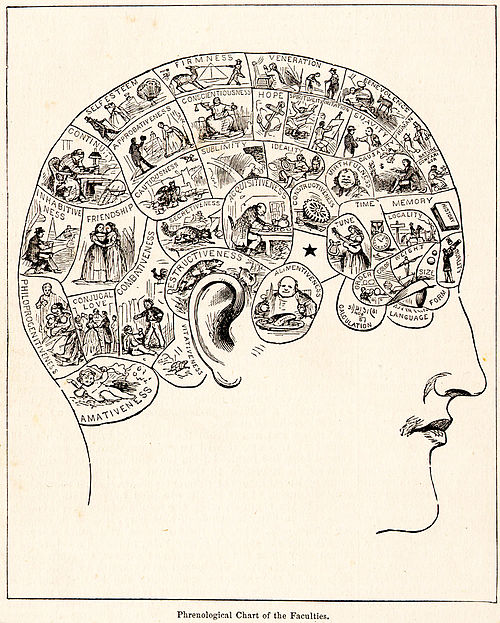
Back بوابة:علم النفس Arabic Portal:Psikologi BAN Портал:Психология Bulgarian دەروازە:دەروونناسی CKB Portál:Psychologie Czech Portal:Psychologie German Portal:Psicología Spanish Portaal:Psühholoogia Estonian درگاه:روانشناسی Persian Teemasivu:Psykologia Finnish
The Psychology Portal
| Part of a series on |
| Psychology |
|---|
Psychology is the scientific study of mind and behavior. Its subject matter includes the behavior of humans and nonhumans, both conscious and unconscious phenomena, and mental processes such as thoughts, feelings, and motives. Psychology is an academic discipline of immense scope, crossing the boundaries between the natural and social sciences. Biological psychologists seek an understanding of the emergent properties of brains, linking the discipline to neuroscience. As social scientists, psychologists aim to understand the behavior of individuals and groups.
A professional practitioner or researcher involved in the discipline is called a psychologist. Some psychologists can also be classified as behavioral or cognitive scientists. Some psychologists attempt to understand the role of mental functions in individual and social behavior. Others explore the physiological and neurobiological processes that underlie cognitive functions and behaviors.
Psychologists are involved in research on perception, cognition, attention, emotion, intelligence, subjective experiences, motivation, brain functioning, and personality. Psychologists' interests extend to interpersonal relationships, psychological resilience, family resilience, and other areas within social psychology. They also consider the unconscious mind. Research psychologists employ empirical methods to infer causal and correlational relationships between psychosocial variables. Some, but not all, clinical and counseling psychologists rely on symbolic interpretation. (Full article...)
Selected article -

The Nobel Prize in Physiology or Medicine (Swedish: Nobelpriset i fysiologi eller medicin) is awarded annually by the Swedish Karolinska Institute to scientists in the various fields of physiology or medicine. It is one of the five Nobel Prizes established by the 1895 will of Alfred Nobel (who died in 1896), awarded for outstanding contributions in chemistry, physics, literature, peace, and physiology or medicine. As dictated by Nobel's will, the award is administered by the Nobel Foundation and awarded by a committee that consists of five members and an executive secretary elected by the Karolinska Institute. While commonly referred to as the Nobel Prize in Medicine, Nobel specifically stated that the prize be awarded for "physiology or medicine" in his will. Because of this, the prize can be awarded in a broader range of fields. The first Nobel Prize in Physiology or Medicine was awarded in 1901 to Emil Adolf von Behring, of Germany. Each recipient receives a medal, a diploma and a monetary award that has varied throughout the years. In 1901, von Behring received 150,782 SEK, which was equal to 7,731,004 SEK in December 2008. The award is presented in Stockholm at an annual ceremony on 10 December, the anniversary of Nobel's death.
Laureates have won the Nobel Prize in a wide range of fields that relate to physiology or medicine. As of 2009, 8 Prizes have been awarded for contributions in the field of signal transduction by G proteins and second messengers, 13 have been awarded for contributions in the field of neurobiology and 13 have been awarded for contributions in intermediary metabolism. In 1939 Gerhard Domagk, a German, was not allowed by his government to accept the prize. He later received a medal and diploma, but not the money. As of 2024, the prize has been awarded to 229 individuals, thirteen of them were women (Gerty Cori being the first to be awarded in 1947). (Full article...)
Selected image -

Quotes -
- "To the intelligent man with an interest in human nature it must often appear strange that so much of the energy of the scientific world has been spent on the study of the body and so little on the study of the mind." — Edward Thorndike
WikiProjects
Selected biography -
Edwin Garrigues (Garry) Boring (October 23, 1886 – July 1, 1968) was an American experimental psychologist, Professor of Psychology at Clark University and at Harvard University, who later became one of the first historians of psychology. A Review of General Psychology survey, published in 2002, ranked Boring as the 93rd most cited psychologist of the 20th century, tied with John Dewey, Amos Tversky, and Wilhelm Wundt. (Full article...)
Did you know (auto-generated) -

- ... that a study of people who reported experiences of alien abduction found that many exhibited characteristics consistent with fantasy-prone personality?
- ... that the first day of filming of the psychological thriller Farah coincided with the beginning of the 2019 Lebanese protests?
- ... that the psychological inner space genre was a rebellion against the traditional focus of science fiction on literal outer space?
- ... that Angéline de Montbrun by Laure Conan is the first psychological novel written by a French Canadian?
- ... that the 2024 psychological horror game Mouthwashing utilises non-diegetic scene transitions that mimic glitches and crashes?
- ... that Susan Silk developed ring theory when a colleague said that Silk's breast cancer wasn't just about her?
Subcategories
Related portals
More did you know -

- ...that ASNOVA was a group of architects that linked psychology and architecture by building laboratories and expounding psychological theories?
- ...that Alexander Everett used techniques from the Unity Church and Jose Silva's Silva Mind Control, in his company Mind Dynamics?
- ...that BBC journalist Leonard Miall worked on psychological warfare in New York and San Francisco with the Political Warfare Executive during World War II?
- ...that Peter Birkhäuser was so moved by a moth trapped by a window that he painted its picture, and later analysed his thoughts and corresponded with Carl Jung (pictured)?
Psychology topics
Recognized content
Associated Wikimedia
The following Wikimedia Foundation sister projects provide more on this subject:
-
Commons
Free media repository -
Wikibooks
Free textbooks and manuals -
Wikidata
Free knowledge base -
Wikinews
Free-content news -
Wikiquote
Collection of quotations -
Wikisource
Free-content library -
Wikiversity
Free learning tools -
Wiktionary
Dictionary and thesaurus
© MMXXIII Rich X Search. We shall prevail. All rights reserved. Rich X Search






















